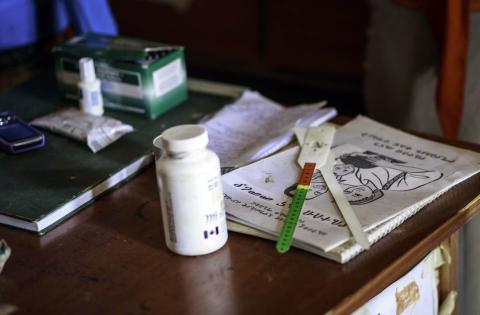Prebiotics for severe wasting: Evidence from a randomised controlled trial in Pakistan
This is a summary of the following paper: Batool M, Saleem, J, Zakar R et al. (2023) Double-blind parallel treatment randomized controlled trial of prebiotics’ efficacy for children experiencing severe acute malnutrition in southern Punjab, Pakistan. Children, 10, 5, 783. https://www.mdpi.com/2227-9067/10/5/783
The aim of this study was to assess whether adding prebiotics to ready-to-use therapeutic food (RUTF) improved nutrition and clinical outcomes for severely wasted children aged 6-59 months without medical complications. Although comparable studies have been conducted in different settings, this was the first double-blinded, randomised, controlled trial in Pakistan - a country with a particularly high burden of child malnutrition and mortality. Wasting was defined as the presence of bilateral pitting oedema (grades 1-2) and a weight-for-age z-score of <-3 or mid-upper-arm circumference (MUAC) of <11.5cm.
Children were randomised in a 1:1 ratio to the intervention and control arms. The intervention consisted of a standard RUTF treatment with 4g galacto-oligosaccharides, whereas the control arm used RUTF with added starch. All sachets (intervention and placebo) were labelled with sequence numbers and had similar texture and appearance to ensure blinding. Other than the food used, children from both groups received similar treatment that followed the national guidelines. Despite a modest dropout rate, the final sample size exceeded what was required, increasing study power (n=204).
At endline, children in the intervention group were significantly heavier, had greater MUAC scores, and had more favourable blood markers.1 No adverse events were suspected or reported. Although there were significant differences between the two study arms at baseline, all differences became more pronounced and more significant when measured again at follow-up - highlighting that, although some groups may have been inherently biased, this may not have disrupted the findings given the effects observed. There were no significant differences in weight or MUAC between the two arms at baseline, so we can be more confident of these anthropometric findings at follow-up.
Notable limitations affect the interpretation of these otherwise strong findings. Firstly, the two-month follow-up period was particularly short, so this experiment would have to be repeated over a longer duration to determine whether there are long-term benefits. Secondly, by selecting cases without medical complications, the trial potentially enlisted a group of 'hyper responders' primed for treatment. In a programmatic setting, a broader pool of more complex cases and/or less wasted children would be treated, which may lead to less pronounced effects. Thirdly, oligosaccharides are but one variation of prebiotics and research on the gut and the microbiome is a relatively new field, so the authors also suggest additional research with other formulations is needed to determine whether this effect is true for all prebiotics, as well as to establish the optimal type and dosage of prebiotic that would yield the best outcomes.
Nevertheless, these results are compelling, and the authors note that "supplementation with RUTF and prebiotics has proven to be an efficient, effective, and safe therapy for children suffering from uncomplicated severe acute malnutrition (wasting)."
1 Haemoglobin, haematocrit, mean corpuscular volume, mean corpuscular haemoglobin, platelets, and serum albumin were all measured in this study.

